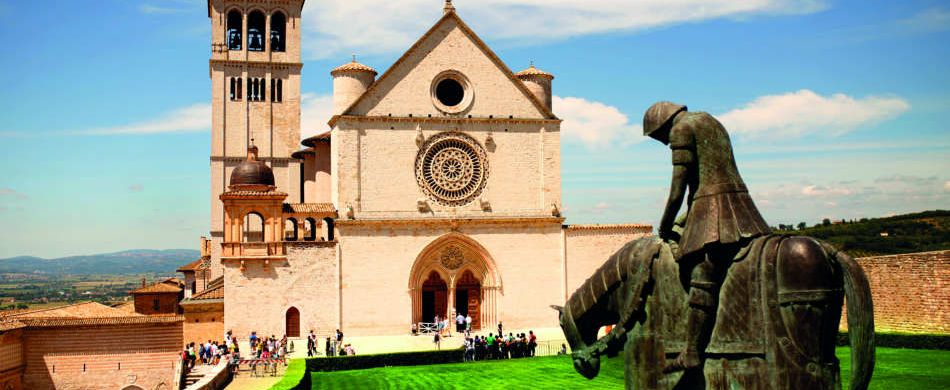OFTEN, whenever I am accompanying the relics of Saint Anthony throughout various parts of the world, I meet worried parents who approach their beloved saint in order to obtain protection for their sons and daughters in the armed forces. These parents are often in great apprehension about their children’s safety because they are in active service in conflict zones or in peacekeeping missions. They sometimes find this anxiety unbearable.
I also sometimes meet people who have served in the armed forces and who are now having a hard time adjusting to civilian life. Some of them find this particularly difficult because they are suffering from Post Traumatic Stress Disorder, a serious and debilitating condition that can occur in people who have gone through harrowing experiences.
Perhaps it’s because I am a Franciscan friar, but every time I meet these distressed people I am reminded of Pietro Bernardone, his wife Pica, and of their son Francis, that is, Saint Francis of Assisi.
In the year 1202 the city of Perugia had declared war on the city of Assisi and all able-bodied men were called to military service. Francis, who was then 20 years old, and had often daydreamed of grandiose adventures as a knight in battle, joined the military expedition against Perugia in order to defend his hometown and its people.
The two armies clashed at a place called Collestrada, and Francis’ first biographer, Thomas of Celano ater wrote that the engagement turned into a bloodbath beyond all measure. Some chroniclers of the period write of a long battle, wholesale slaughter, of rivers flowing with blood… Did Francis wound any of his enemies? Did he actually kill any of his adversaries? Maybe, but we cannot know for sure.
In any case the Assisians were soundly defeated, and the survivors were bound in chains and thrown into Perugia’s dungeons. Francis was one of them, and he had to spend a full year in the city’s dark and cold prisons. There he witnessed the utter brutality that human beings are capable of inflicting upon one another. Francis was spared the most savage tortures only because, when he was captured, he was well-armored and riding with the knights, so the Perugians mistakenly assumed he was one of the nobility. This may well have saved his life because the poorer prisoners, from whom no ransom was obtainable, were immediately executed.
Eventually, after a year, Pietro Bernardone was able to pay the ransom for his son and Francis was finally allowed to come home. The experience, however, had severely debilitated him, and the future saint was bedridden for a number of months. He had probably contracted some disease on account of the lack of good food and hygiene in the prisons. Francis may even have been suffering from what we now call Post Traumatic Stress Disorder. Slowly, thanks to his mother’s loving care, he was able to recover both physically and psychologically, but he was now a changed man. He had formerly been of a lively and cheerful disposition, now he was a sullen individual who preferred to stay at home. He often slept, even though no amount of rest was able to relieve him of his inner fatigue.
It was in this crucial moment of his life, when he tried to redeem himself by joining the knights of Sir Walter of Brienne who were fighting for the pope, that Francis encountered Jesus. This encounter led him to strip himself of an easy and carefree life in order to wed ‘Lady Poverty’ and to live as a true son of our heavenly Father.
Thus began Francis’ great love for Jesus, an all-encompassing love that was able to bring Jesus back to the centre of Christian spirituality. Through the example of his own life, Francis made everyone understand that not only did Christ die for our sake, but also that he also rose again to love us more than ever, and forever.
Dear readers, in this month of October, in which we remember one of the Church’s best known and most loved saints, let us pray above all for peace, and for those who are trying to defend and maintain it throughout the world.
Let’s also remember those who, after their military service, are trying to readjust to civilian life. During their service they experienced difficult moments and survived dangerous situations; however, even a return to civilian life poses challenges that for some of them may seem insurmountable. In this particular phase of their life’s journey may they be able, like Saint Francis, to fulfill the purpose God intended when he created them.




